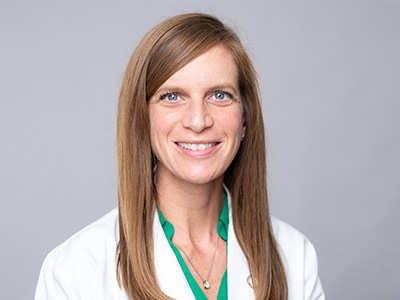 Carissa M. Thomas, M.D., Ph.D., FACS, collaborates with Loma Linda University School of Dentistry Department of Oral Maxillofacial Surgery’s Chi T. Viet, M.D., Ph.D., DDS, on early-stage oral squamous cell carcinoma research.
Carissa M. Thomas, M.D., Ph.D., FACS, collaborates with Loma Linda University School of Dentistry Department of Oral Maxillofacial Surgery’s Chi T. Viet, M.D., Ph.D., DDS, on early-stage oral squamous cell carcinoma research.
Modest survival rates in early-stage oral cavity squamous cell carcinoma (OSCC) patients is a major problem that head and neck microvascular surgeons, like Carissa M. Thomas, M.D., Ph.D., FACS, see too often in their tenure. About 30,000 Americans are diagnosed with OSCC each year, and approximately 80% of those newly diagnosed cases are early stage (I and II). Thomas is the director of head and neck microvascular surgery at the Heersink School of Medicine’s Department of Otolaryngology and is a passionate head and neck cancer researcher and assistant professor.
“(OSCC) is an unpredictable disease, that, unlike other cancers or even other head and neck cancer subsites… has seen little improvement in the outcome or treatment advances in decades,” says Thomas. “A substantial proportion of newly diagnosed OSCC cases are in young patients without the traditional risk factors (i.e., tobacco or alcohol use). These patients have poor survival despite their early stages.”
Thomas is thrilled to offer her support to Chi T. Viet, DDS, Ph.D., M.D., and her team at Loma Linda University School of Dentistry Department of Oral Maxillofacial Surgery (LLUSD) for a $4 million R01 grant for "The REASON Score: an Epigenetic & Clinicopathologic Score to Predict Risk of Poor Survival in Early Stage Oral Squamous Cell Carcinoma" by establishing the Heersink School of Medicine as a study subsite.
Viet is a highly accredited oral maxillofacial surgeon, scientist, and principal investigator of the National Institute of Health (NIH)-funded LLUSD lab. The REASON score, developed by Viet, is the first in OSCC research to combine patient clinicopathologic factors with methylation signature to more accurately forecast the risk of poor 5-year survival and recurrence of the disease.
Thomas believes that a “clinically meaningful” risk score (REASON score) like Viet’s will indeed change medical professionals’ treatment administration of early-stage OSCC patients and potentially improve the decades-long relatively stagnant five-year survival rate (approximately 60% overall).
With this grant, Thomas is primarily responsible for prospective patient recruitment, collecting brush swabs of tumor and normal tissue as well as clinicopathologic information on these patients, and performing the DNA extractions on samples to send to Viet’s lab at LLUSD. Anthony Morlandt, M.D., DDS, FACS, in the Department of Oral Maxillofacial Surgery at UAB is a key collaborator for Thomas on patient recruitment. In addition, Thomas will identify all of the retrospective oral cavity patients already treated at the school and work with pathology to send the tumor tissue to LLUSD. UAB Medicine treats approximately 700 patients with OSCC per year with 1/3 of those cases early stage (I and II). The long-term goal is to not only improve treatment outcomes of early-stage OSCC but also to build a strong collaboration with Dr. Viet at LLUSD for this and future projects.